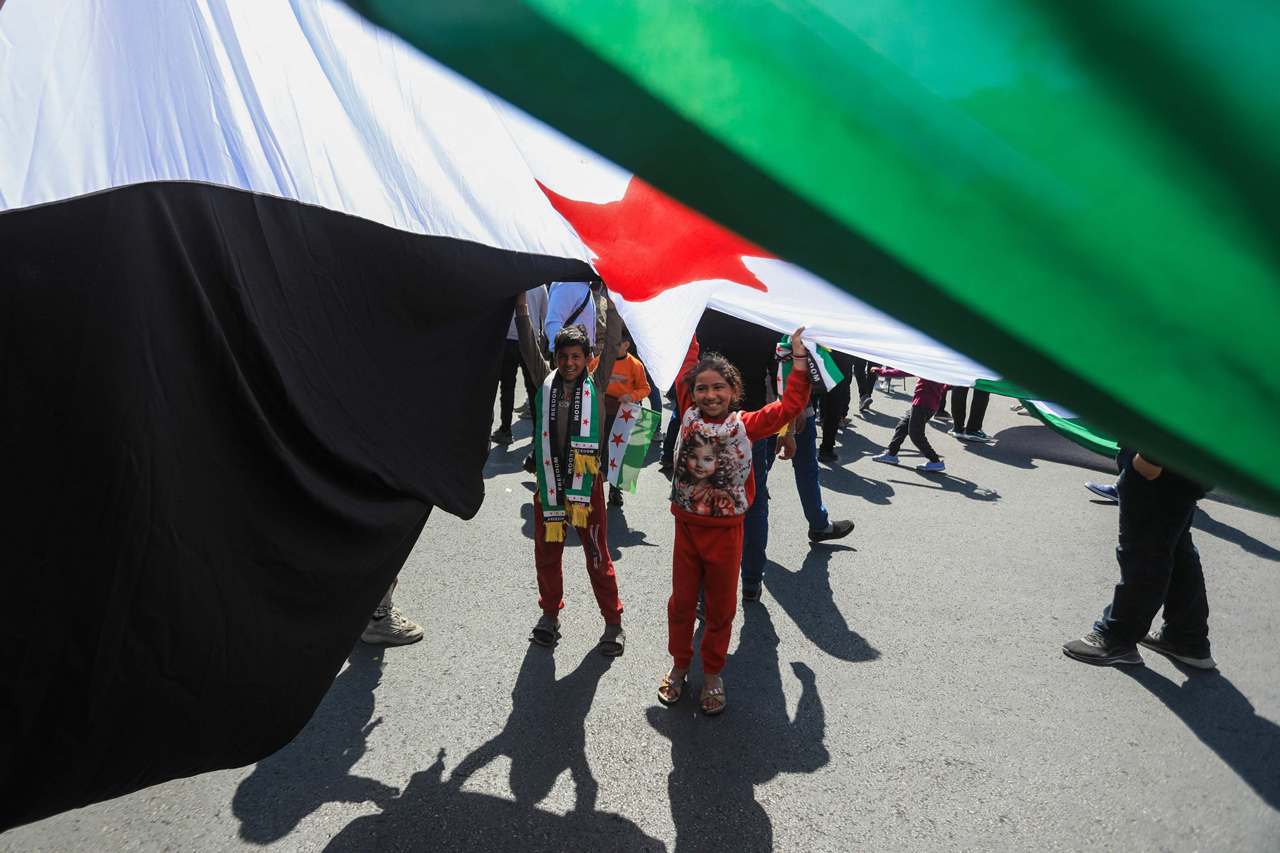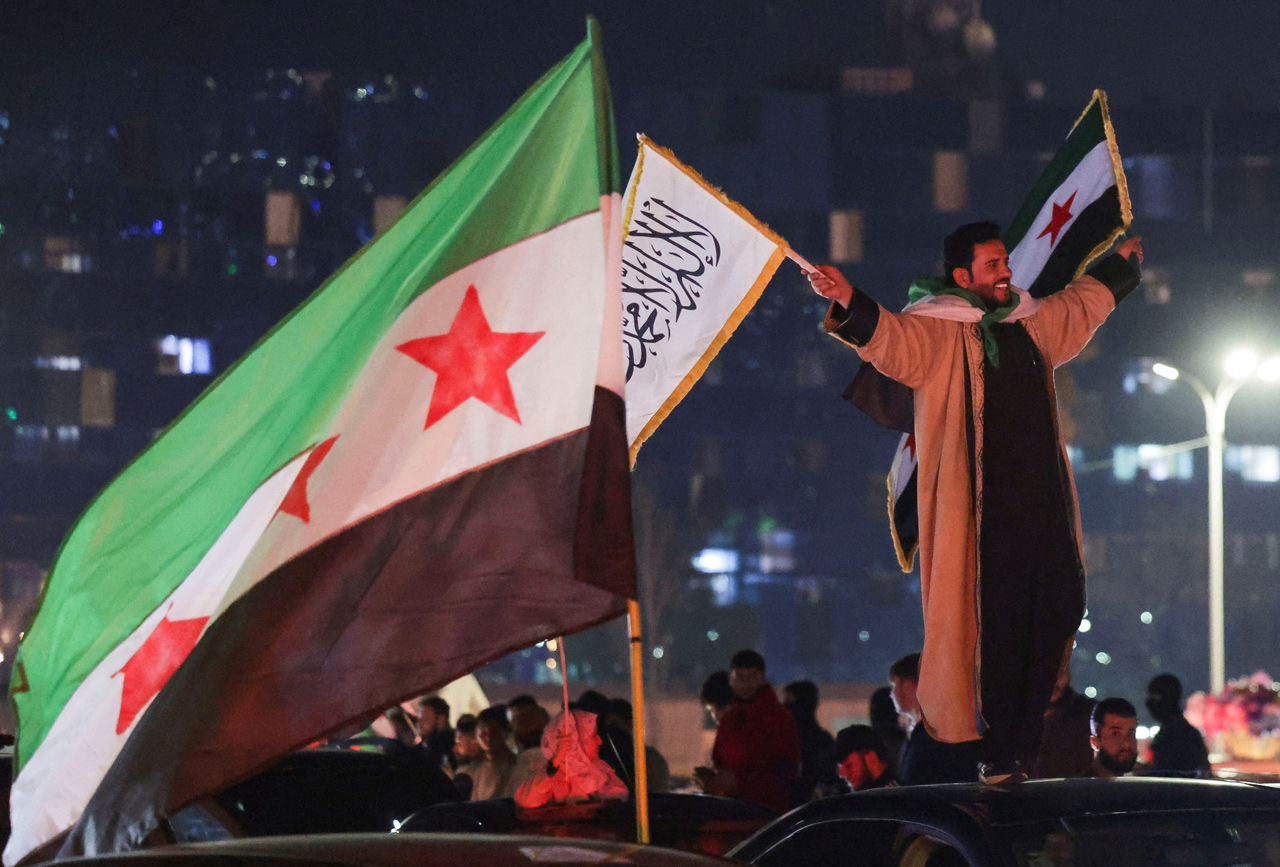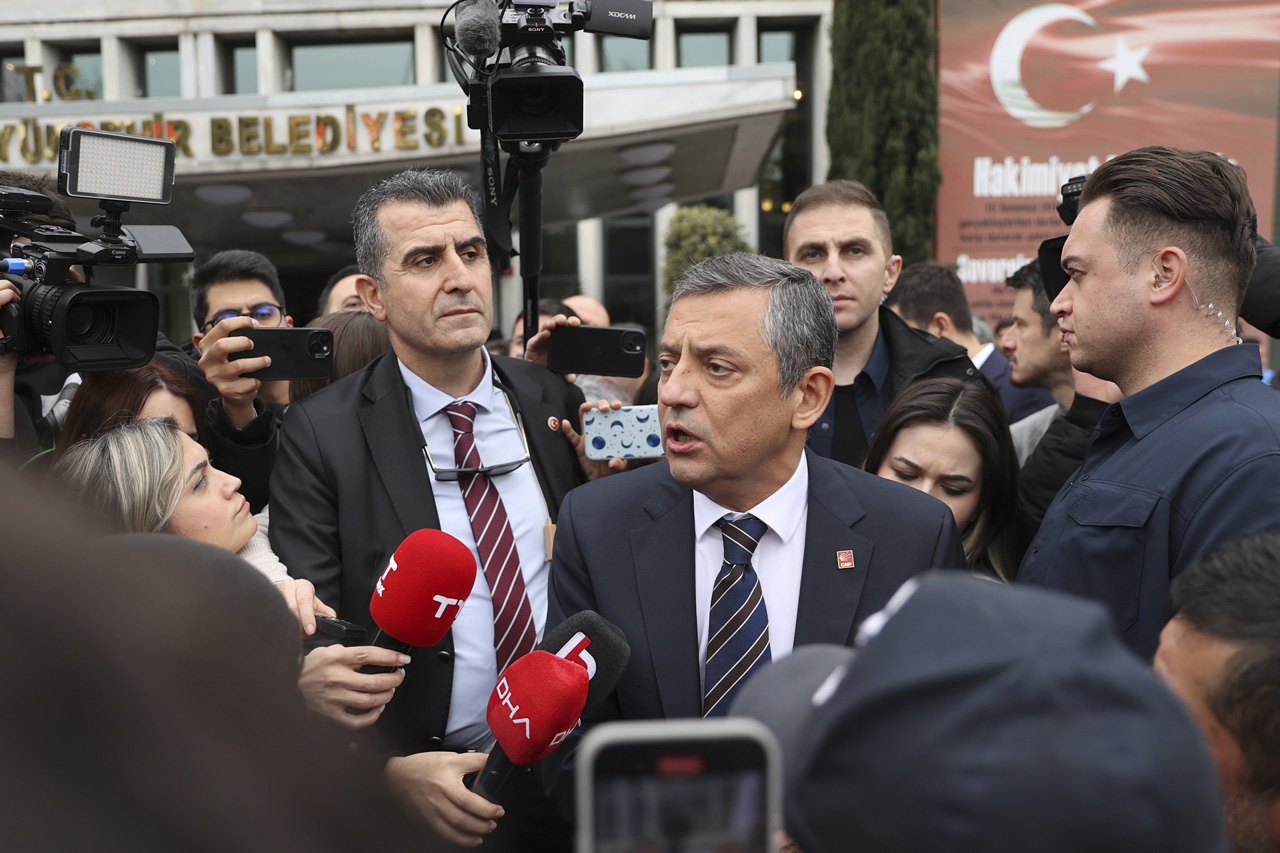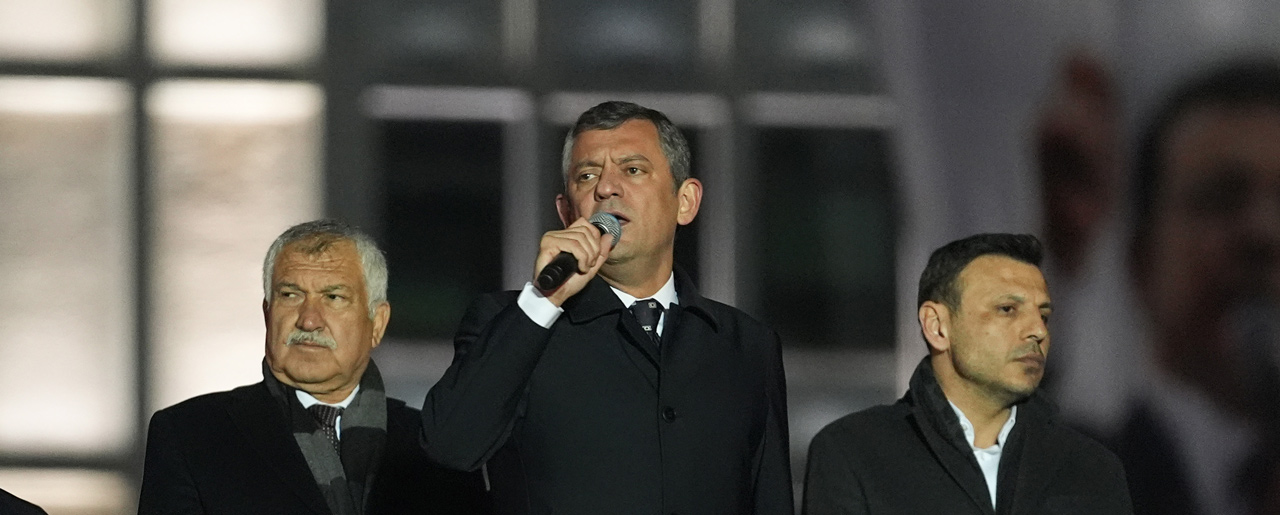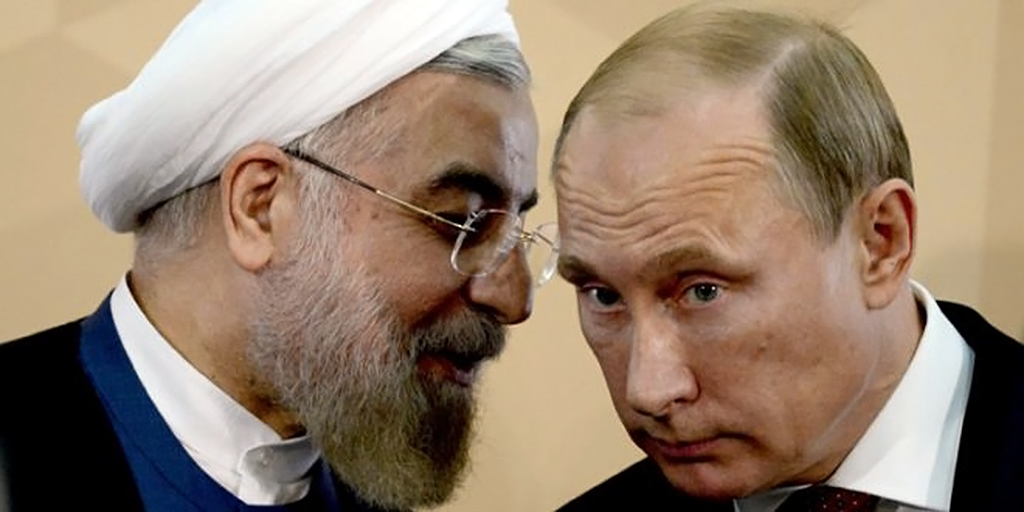
Russia, Iran planning to declare victory over Idlib
Regime leader Assad wants to claim victory over Idlib to prove he has Syrian lands under his control, says analyst
Share
An expert analyst evaluated possible scenarios for the embattled opposition stronghold of Idlib, Syria, the effects of the great migration wave on Turkey and Europe, and Idlib’s strategic importance for Turkey.
Anadolu Agency sat down with Veysel Kurt, a research specialist at the Foundation for Political, Economic and Social Research (SETA), based in Ankara, Turkey’s capital, and a faculty member of the political science department at Istanbul Medeniyet University,
Question: Idlib, which shares borders with Turkey, has received the largest number of internally displaced people in Syria. In this context, what is the strategic importance of Idlib for Turkey and the Assad regime?
Kurt: Having Aleppo to the east, Aleppo’s Afrin district to the northeast, Hama to the South, and Lazkiye to the northwest increases the strategic importance of Idlib, which has borders with Turkey in the northwest. Idlib is as you know is right next to Turkey and is a neighbor to our city of Hatay on our southern border. Idlib was one of Syria’s most populous cities before the crisis, as it is a fertile region for agriculture. Its population is said to be between 1.5 and 2 million.
With the crisis, especially after 2015 when the opposition captured Idlib, migration from the conflicting regions intensified. As you know Aleppo is close to Idlib and at the end of 2016, as Aleppo was taken under control by the regime, another great migration started from Aleppo toward Idlib. The second serious migration wave was from Eastern Ghouta and lastly, when an operation was carried out on Dera, the population in Idlib reached 3.5-4 million.
Q: Idlib is a city where anti-Assad regime groups are located. Hay'at Tahrir al-Sham (HTS) is the most important of these armed groups. What other armed anti-regime groups are in the region?
Kurt: Idlib is important in terms of being the only city under the control of the opposition. Control of the city has a fragmented structure. Idlib is the last stronghold for the Syrian opposition. Besides, the largest opposition groups maintaining an armed struggle against the Assad regime are in Idlib. In 2015, after the opposition captured Idlib from regime control, they restructured themselves under the name of Army of Conquest and the city was controlled through this.
The Army of Conquest was the largest organization that the Syrian opposition formed. The city was controlled by a coalition which included the Al-Nusra Front and other opposition groups. Then these structures began to splinter among themselves and divide the city according to spheres of influence. In other words, these structures which entered the city with a consensus, a coalition, became groups at odds with each other from time to time after they achieved control. There were serious conflicts between Ahrar us-Sham and HTS. Serious scenarios were also seen between the Nureddin Mahmud Zengi group and HTS.
Consequently at this point we see that some regions are controlled by HTS, some by Nurettin Zengi, and some by Ahrar us-Sham. Here, countries such as Turkey and the U.S. treat these structures differently on certain levels and don’t regard all the groups as terrorist groups. For instance, the Nusra Front, under its previous name, was seen as a terrorist group. Today things are the same with HTS. But Nurettin Zengi and Ahrar us-Sham have not been declared a terrorist group by Turkey, the U.S., Western countries, or some Gulf countries. On the other hand the trio of Russia, the Syrian regime, and Iran treats almost all the groups as terrorist groups. From time to time they declare this openly.
Terrorist groups
Q: How did Turkey's designation of the HTS as a terrorist group before the Tehran summit affect the status of these groups?
Kurt: The situation which makes the question of Idlib complicated originates partially from this: that Turkey saw the HTS as a terrorist group before the Tehran summit indicated that it is necessary to seriously differentiate these groups from each other. In the meantime, it was a concrete step, a concrete proposal of solution towards the theses of the Russia, Iran, and regime trio. In other words, it was a serious message from Turkey suggesting, “If you’re talking about a terrorist group here, let’s define them, reach a consensus on who they are, and solve a potential Idlib problem this way.”
Turkish President Recep Tayyip Erdogan made it clear whether the problem is a terror problem or something else frequently and openly during the summit. At the summit, we witnessed that Turkey presented constructive and concrete suggestions and approaches. I can sum up the primary elements that make the Idlib problem a complicated matter as having a border with Turkey and having twice the population of its potential, that groups divided up the city according to their activity regions, and that Turkey, Russia, and Iran present approaches to these groups different from one another.
Q: Stephane Dujarric, spokesman for the UN secretary-general, warned that a great humanitarian tragedy may take place, saying that all sides in Idlib are responsible for protecting civilians under international law. Do you have concerns about the probability of a great migration wave too?
Kurt: First of all, it is necessary to underline a very basic and humane thing. There is a set of things to do to prevent a humanitarian crisis, migration waves, refugee influxes. For this, it is necessary to prevent and stop the conflicts in Idlib. It should be underlined that little conflicts create little migration waves and great conflicts and attacks create large migration waves. There is a variety of measures that can be taken after a humanitarian crisis has occurred, such as easing that humanitarian crisis, building places where people can get accommodation, giving them protection, providing food security. But if a refugee influx or a great migration isn’t desired, this is directly related to the operation to be done in Idlib, that is, the conflict itself.
Q: About the attacks in Idlib, the EU countries have been making statements in line with Turkey’s concerns. They know that this migration wave doesn’t concern Turkey only, but will threaten Europe seriously as well. In this context, I would like to ask this: Does Europe have arrangements or plans to collaborate with Turkey against such a great migration wave?
Kurt: As you have expressed, after the attacks on Idlib started, EU countries made statements that support Turkey. In fact these are not the first statements that the EU countries have made within this period. They make such statements all the time whenever a migration or refugee risk is in question. Indeed, at the beginning of the Syria crisis, they made statements for the end of the Assad regime directly. However, when we look at how this proceeds, we see that there’s a crucial difference between their practices during the process and their statements.
Very serious treaties on the institutional level have been signed between Turkey and the EU. Especially a treaty focused on the two issues including refugee problems and visa liberalization. However, they haven’t fulfilled any of the pledges they made to Turkey. Turkey kept the Syrians in Turkey, not only taking a great risk but also probably acting out of the refugees’ wills. I think it is very difficult for a similar scenario to take place if Idlib leads to new refugee influxes.
The reason is that Turkey is now at the limits of its “we should somehow keep the refugees” policy. Turkey has a serious problem with the refugee burden. In fact, Turkish President Erdogan declared this very openly, stating, “We have come to the limits of our refugee burden. We somehow keep enduring this burden itself. However, when it comes to taking up a new burden, Turkey does not have the power or capacity to take more responsibility.”
Q: So you find the EU’s positive statements tactical.
Kurt: Both the burden carried along with the will and wishes of the refugees will most likely constrain Turkey’s refugee policy on a cyclical and tactical level and will make it evolve. Since the beginning of the Idlib crisis, the statements of Europe in line with Turkey’s concerns are based on the mindset of “Turkey has already taken in 3-4 million Syrians, it will take 1 million more, and Europe won’t have to deal with that problem.” We can’t change this mindset from European minds because Turkey is no longer at that point.
With that tactical logic they try to motivate Turkey. Moreover, the influx of refugees isn’t only about the economy. So who will come alongside those refugees, what kind of armed radical elements will be involved among them and come here… These risks must be considered by both Turkey and Europe.
Claiming victory
Q: Why is Idlib so important to the Assad regime and their allies, do they aim for a decisive victory by taking control of Idlib?
Kurt: That is certainly correct. Assad is aiming toward claiming victory by way of Idlib. So I think he’s trying to show that the Syrian crisis has been resolved, the opposition has been decisively beaten, and Syrian lands are under control by also somehow leaving the east of Euphrates out of the argument and this way claim a victory. When I say Assad I don’t just mean Assad himself, Russia and Iran must also be taken into account. For a decisive victory, Assad cares symbolically about putting Idlib under control.
I think the reason why Putin, in his statement after Tehran summit, said that 90 percent of Syria has been taken under control is about this too. I mean, there’s 10 percent left and there are expectations once that part is also under control that the Assad administration will be less questioned, its legitimacy will be improved, and countries in the international arena will act quicker so that Assad is once again ruling legitimately.
Q: In Idlib, there are other actors besides Assad and his allies trying to get into the play. James Mattis, the U.S. defense secretary, has statements on an “operation plan” regarding Idlib. Why did Idlib became a field of struggle between international powers?
Kurt: Each of those actors has of course a reasoning, a method, and a goal. For instance, Russia wants to gain a decisive victory over the opposition. The tools they utilize for this are very clear, they adopt military methods as broadly as possible without even caring about massacring civilians. Their reasoning is the terror groups in Idlib. Their ultimate goal is to get this area back in Assad’s control. We can also say similar things about Iran and Assad.
However, I think the attitude of the U.S. here is indecisive. I find such expressions regarding Turkey in the operation plans mentioned by Mattis, the statements made by Trump on Twitter, and the occasional meetings, to be indecisive. When we look at their Syria policy and the attitude they hold so far, they see Idlib not as a problem to be fixed, but as a tool for precipitating the crisis in that region. They see it as an area where they can once again put Turkey, Russia, and Iran against each other. So I think they approach this issue from that perspective.
In Syria, there are issues that are costly for Turkey such as the PKK, Daesh, the Assad regime. In all of these vital and essential issues, Turkey’s concerns were not met either in the field or politically. So the statements made by the U.S. regarding collaboration with Turkey aren’t honest. The U.S. won’t be on Turkey’s side on the Idlib issue either. On the contrary, they will only precipitate the crisis. It is possible to say that they are conspiring to pit the actors who are looking for a solution in Syria against each other. However Turkey might take advantage of the statements made by U.S. and use them as leverage to balance it out with Russia and Iran.
Turkey after Idlib operation
Q: How do you assess the statements saying that if the Assad regime and their allies are successful with operations in Idlib, Turkey’s presence in Idlib will be problematized?
Kurt: If you’ve noticed, the trio of the Assad regime, Iran, and Russia use two statements in regards to Turkey. The first concerns the terror groups issue which usually leaves the PYD out of it. For instance while [Hassan] Rouhani, the president of Iran, problematized the presence of the U.S. east of the Euphrates throughout the Tehran summit, he said nothing about the PYD. This must not be ignored. Their second statement is about them legitimizing their presence in Syria, via the invitation of the regime.
So if the Idlib issue is resolved in their favor, the statements saying the areas taken under control through Operations Euphrates Shield and Olive Branch along with Turkey’s presence here will be problematized even more vocally are correct, that is what I think as well. So, when we look behind the scenes of the Idlib issue, I think these hold great importance. Thus, there’s the oft-discussed issue of refugees regarding Idlib. Also, the terrorizing and marginalizing of the sponsoring groups are the second important topic for Turkey.
Q: So then, can we say that there’s no solid foundation for our cooperation with Russia and Iran on finding a resolution in Syria?
Kurt: When we take a look at the Astana process and the cooperation with Russia in Syria, we need to underline that these issues are always potentially troublesome. For instance, Russia had no serious objections to Operations Euphrates Shield and Olive Branch. However they don’t recognize the PYD/PKK as a terrorist group. They still don’t problematize the presence of the PYD east of the Euphrates. Since the PYD is under U.S. protection, one could even say they are involved in a secretive agreement with the U.S. So, the platform that we see when we look at the Syria problem as a whole also applies here.
While we agree with Russia on certain topics, our disagreement still goes on with other topics. One of the political solutions agreed upon in Syria was the return of refugees. However, the agreed principles and the developments in the field don’t add up to each other. The most heavily disputed topics were saved for last. You don’t bring the most heavily disputed topic to the table first. This is where we are now, actually. However I don’t think that these issues carry the potential of pitting Turkey and Russia against each other on a grand scale, either. That’s what diplomacy is for.
Q: What do you think about criticisms claiming that the Sept. 7 Turkey-Russia-Iran summit in Tehran eliminated the gains of the Astana and Sochi summits?
Kurt: To be franks, Tehran was a summit where three actors came together regarding the Syria crisis. However, Russia and Iran were at the table with different motivations from Turkey. At the table, there was a struggle regarding the legitimization of the Assad regime rather than a solution to the Idlib problem. Also, the fact that the PYD isn’t problematized was also implied. We can say that they came to the table trying to force their own way of providing a solution to the Idlib crisis. President Erdogan’s outcries in front of cameras must be assessed in that context.
Here’s what I’m trying to say. Iran and Russia wanted to impose certain things on Turkey by way of a fait accompli in a live broadcast. Because there was a calculated move to achieve a fait accompli on the Idlib issue. Also while there was a request for recognition of all the groups that are terrorists, there were moves to leave the PYD out of it. President Erdogan’s political moves prevented that.
Russia
Q: Do you think UN Secretary-General Antonio Guterres’ call for Turkey, Russia, and Iran to prevent war in Idlib and not spare any efforts to protect civilians will be answered by Russia and Iran?
Kurt: I don’t think so. Neither Russia nor Iran have so far supported any UN initiative on Syria. They didn’t object when the Assad regime undermined the UN’s endeavor towards humanitarian relief and regarding the issue of chemical weapons research, and acted similarly during sessions of the UN Security Council meant to prevent aggression. Now, it’s unlikely for the UN to be taken seriously by Russia in a period where the U.S. and Russia don’t tread on each other’s feet.
Q: They try to paint Idlib as the final phase of the crisis. Does the same critical situation apply to Turkey as well in this context?
Kurt: President Erdogan clearly stated that let alone being involved in a large-scale attack on Idlib, they won’t even stand aside to watch. The PYD is carrying out serious preparations for a potential operation in Idlib. We can see that they do this partly to exact revenge on Turkey and the opposition, and partly by making long-term plans to settle again in Afrin by sitting at the negotiation table with the Assad regime. Thus, all these concerns call for Turkey to be more sensitive and aware on the Idlib issue.
The military activity being carried out by Turkey both on the border and in Idlib for a while now is a development that must be paid attention to in this context. Turkey must maintain as strong a military presence as possible with the PKK/PYD on one hand, the regime backed by Russia and Iran on the other, along with potential threats posed by some other groups there. As you said, it was not a correct approach to consider Idlib the final phase of the ongoing crisis. Yes, for Turkey Idlib is a critical phase but it’s not the final issue or the final phase. East of the Euphrates is of much more serious concern to us. Thus Idlib may be the final phase when it comes to a large war or battle.
Q: If Russia, in agreement with the Assad regime, embarks on a large-scale operation in Idlib, is there any possibility of us meeting halfway or coming to an agreement?
Kurt: Honestly, I don’t think the U.S. will be involved in the Idlib issue as much as or on the same level as Turkey, Iran, and Russia. Thus Turkey may take advantage of the statements made by the U.S. in support of Turkey, use it for balance. But I don’t think Turkey will act on the U.S. side with expectations toward developments in its own favor, and I don’t think it should anyway.
Q: Do you have any predictions on what the future holds for Syria?
Kurt: Even if the parties get together today and agree for the conflicts to be left behind, the Syrian crisis won’t end. That is because there’s no scenario or otherwise on the table that will resolve the crisis in a week, a month, or three months. We can show various precedents for this from history or even from the present day. The simplest example would be Libya. There’s no large-scale conflict going on but there’s a situation going on where nearly all the groups are actively holding onto their weapons and engaging in combat from time to time. This crisis has been going on for at least three or four years in Libya and seems that it will continue. Similarly, I don’t think that the Syrian crisis will be resolved by negotiations in the near future.
Q: Would creating a new constitution or holding new elections in Syria facilitate an easier solution, is that possible?
Kurt: I don’t think elections in Syria would solve the problem. Because the conditions in which elections are held are also important. For instance elections were held in Syria last year and I’m talking about an election won by Assad with 95 percent of the votes. It was an election where the unarmed opposition, ordinary people didn’t take part. In order to provide a healthy election, first of all the majority of Syrian citizens in Turkey and Jordan must return and their political preferences must be reflected in the vote. Otherwise there’s no point to holding an election. Of course I don’t intend to paint a negative picture but for instance to resolve this issue, making a constitution is a very important process. Holding elections is also an equally important cornerstone. However in my opinion, we must also pay attention to the conditions of each of these.
[AA, 18 September 2018]
Tags »
Related Articles



